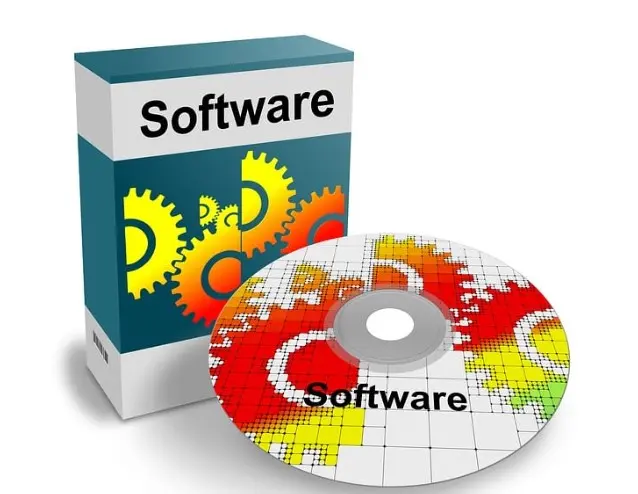In today’s digital age, businesses are collecting and storing vast amounts of sensitive data about their customers, employees, and operations. With this increased reliance on data comes the need for robust privacy management software to ensure data security and compliance with privacy regulations. This article will explore privacy management software’s key features and benefits and explain why your business should consider investing in this essential tool.
Privacy management software is a powerful tool that can help businesses of all sizes to manage their data privacy risks and comply with privacy regulations. With the increasing amount of data being collected and stored by businesses, it’s more important than ever to have a tool that can help you stay on top of your data privacy obligations.
One of the key benefits of privacy management software is that it provides a centralized platform for handling privacy tasks. This means that businesses can easily manage their data privacy risks and compliance obligations from a single location rather than having to juggle multiple tools and platforms.
Another benefit of privacy management software is that it can help businesses to reduce the risk of data breaches and fines. By providing a range of features such as data mapping, privacy risk assessments, and incident response planning, businesses can identify and mitigate potential privacy risks before they become a problem.
In addition to these benefits, privacy management software can also help businesses to protect customer trust and brand reputation. With privacy regulations becoming increasingly complex and numerous, customers are becoming more aware of their data privacy rights and are more likely to take action if they feel that their privacy has been violated. Privacy management software can also help businesses to improve their overall data privacy posture. By providing privacy training and awareness, businesses can ensure that their employees are aware of their data privacy obligations and are equipped to handle privacy-related tasks.
In summary, privacy management software is essential for any business that collects, stores or processes personal data. Its range of features and benefits can help businesses manage their data privacy risks and comply with privacy regulations, reducing the risk of data breaches and fines and protecting customer trust and brand reputation.

Reason 1: Enhanced Data Protection
Safeguarding sensitive information is a top priority for every business, regardless of its size or industry. Unfortunately, data breaches are becoming increasingly common, and their costs can be crippling. Privacy management software helps businesses to protect their sensitive data by identifying potential security risks and implementing adequate security controls.
Safeguarding Sensitive Information
Privacy management software allows businesses to identify and track personal data across the enterprise, providing visibility into the data life cycle from collection to deletion. This helps businesses determine where sensitive data is stored, who has access to it, and whether it’s adequately protected. This information further enables businesses to take action to safeguard sensitive information, thus reducing the risk of data breaches.
For example, a healthcare organization can use privacy management software to track patient data, ensuring that it’s only accessed by authorized personnel and that it’s stored securely. The software can also help the organization identify any potential security risks, such as unsecured devices or outdated software, and take action to mitigate those risks.
Preventing Data Breaches
Privacy management software also helps businesses to detect and respond to data breaches quickly and efficiently. The software can be configured to alert designated personnel when suspicious activities occur, notifying them of potential data breaches. This enables businesses to take swift action, minimizing the impact of the breach on the business and the individuals whose data was compromised.
For example, a financial institution can use privacy management software to monitor its network for any suspicious activity, such as unauthorized access attempts or unusual data transfers. If the software detects any such activity, it can immediately alert the IT department, which can then take action to prevent the breach from occurring.
In summary, privacy management software is essential for businesses looking to protect their sensitive data. By identifying potential security risks, tracking personal data, and detecting and responding to data breaches, businesses can safeguard their information and minimize the risk of costly and damaging data breaches.
Reason 2: Streamlined Compliance with Privacy Regulations
Complying with privacy regulations can be daunting, particularly for businesses operating in multiple jurisdictions. Privacy management software simplifies compliance with privacy regulations by providing a centralized platform for managing regulatory requirements.
Navigating Complex Privacy Laws
Privacy management software helps businesses to navigate complex privacy laws by providing up-to-date information on regulatory requirements. The software can be configured to flag regulatory changes that may impact the business, helping organizations to stay ahead of the curve and avoid penalties for non-compliance.
For instance, businesses can use privacy management software to track the General Data Protection Regulation (GDPR) requirements and ensure they meet the standards. The software can alert the business in case of any changes in the GDPR requirements and help them to update their privacy policies accordingly.
Moreover, privacy management software can also assist businesses in complying with other privacy regulations, such as the California Consumer Privacy Act (CCPA), which requires businesses to provide consumers with a clear and concise privacy policy.
Automating Compliance Processes
Privacy management software automates many of the compliance processes, reducing the burden on in-house teams and freeing up valuable resources. For example, the software can automate the process of creating and distributing privacy policies, manage consent requests, and maintain an audit trail of privacy-related activities.
With privacy management software, businesses can generate and distribute privacy policies in multiple languages, ensuring that they are accessible to all customers. The software can also manage consent requests by providing customers with a clear and concise explanation of their consent and how their data will be used.
Furthermore, privacy management software can maintain an audit trail of privacy-related activities, which can be useful in case of an audit. The software can track who accessed or modified personal data when it was accessed or modified, and why it was accessed or modified.
In summary, privacy management software is essential for businesses that handle sensitive customer data. It simplifies compliance with privacy regulations by providing up-to-date information on regulatory requirements, automating compliance processes, and maintaining an audit trail of privacy-related activities.

Reason 3: Improved Customer Trust and Brand Reputation
Building customer trust and maintaining a positive brand reputation is crucial for every business; privacy management software can also help in this area.
Demonstrating Commitment to Privacy
Privacy management software helps businesses to demonstrate their commitment to privacy by implementing adequate privacy controls and complying with privacy regulations. This helps to reassure customers that their data is being handled securely and appropriately, building trust and confidence in the business.
For example, a healthcare company that uses privacy management software to protect patient data can demonstrate to its patients that it takes their privacy seriously. This can help build trust and confidence in the company, increasing patient satisfaction and loyalty. Similarly, an e-commerce company that implements strong privacy controls can reassure its customers that their personal and financial information is being protected, which might increase sales.
Building Long-lasting Customer Relationships
Businesses can build long-lasting relationships with their customers by demonstrating a commitment to privacy. Customers are more likely to remain loyal to businesses that take their privacy seriously and are less likely to take their business elsewhere.
For example, a social media platform that implements strong privacy controls can help to build trust and confidence in its users. This can increase user engagement and loyalty, as users feel comfortable sharing their personal information and interacting with the platform. Similarly, a financial institution that takes its customers’ privacy seriously can build long-lasting relationships with its customers. Customers are more likely to trust a bank or credit union that implements strong privacy controls, leading to increased customer loyalty and retention.
In summary, privacy management software is crucial for businesses that want to build and maintain customer trust and brand reputation. By demonstrating a commitment to privacy and implementing strong privacy controls, businesses can build long-lasting relationships with their customers, leading to increased loyalty and revenue.
Reason 4: Increased Efficiency and Productivity
Privacy management software can also increase efficiency within your business, freeing up valuable resources and increasing productivity.
Centralizing Privacy Management Tasks
Privacy management software provides a centralized platform for handling privacy-related tasks, reducing the need to manage privacy-related activities in disparate systems. This helps businesses to streamline their privacy management processes, reducing the risk of errors and increasing efficiency.
Reducing Manual Efforts and Human Error
Privacy management software automates many of the time-consuming and error-prone tasks associated with privacy management, such as data mapping and risk assessments. This reduces the burden on in-house teams and reduces the risk of errors, increasing productivity.
Reason 5: Cost Savings
Finally, investing in privacy management software can ultimately save your business money in the long run by reducing the risk of data breaches and associated fines and legal costs.
Privacy management software helps businesses to stay compliant with privacy regulations, reducing the risk of fines for non-compliance. It can also help to reduce the impact of data breaches, minimizing the costs associated with remediation, legal fees, and reputational damage.
Conclusion
Privacy management software is an important tool for any business that collects, stores, or processes personal data. It provides a centralized platform for managing privacy-related tasks, reducing the risk of data breaches, and ensuring compliance with privacy regulations. By investing in privacy management software, businesses can protect sensitive data, build customer trust, increase efficiency, and ultimately save money. Click here to learn more about PPGS ™ and its privacy policy-building system.
